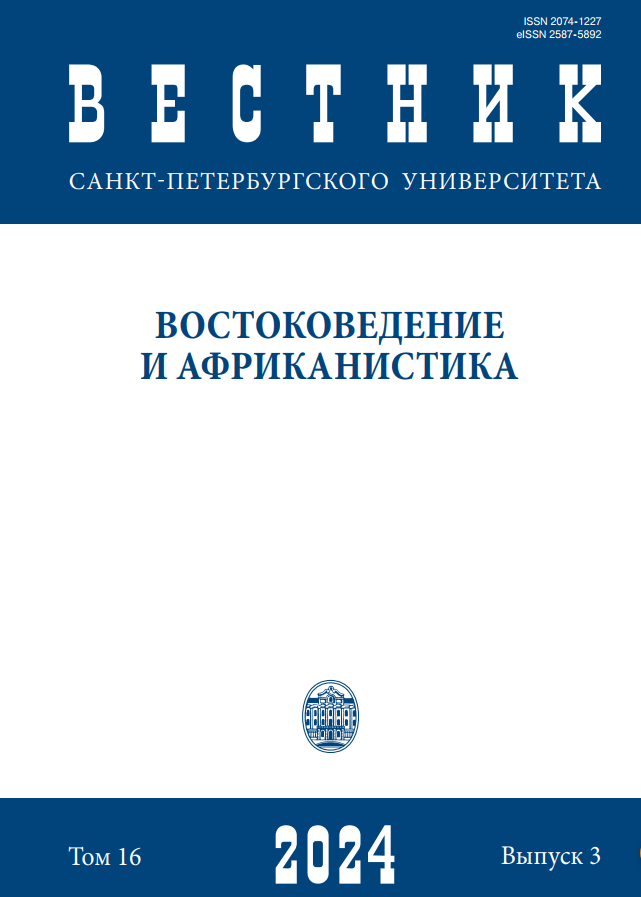Dictator Fiction in Yemen
DOI:
https://doi.org/10.21638/spbu13.2024.307Abstract
The dictator novel, a literary sub-genre of Latin American origin, has been developing in Arab literature since the late 1950s, but it was not until the end of the Arab Spring that works of this sub-genre, as well as short stories about the dictatorship appeared in Yemen. This article examines two books of Yemeni dictator fiction, Ali al-Muqri’s novel Land of the Leader (2019) and Wajdi al-Ahdal’s collection of short stories Fatal Arrangements (2020). Ali al-Muqri tells the story of an Egyptian writer who came to another Arab country to write a biography of the country’s dictator. Though the country and the dictator have no real names in the novel, many recognizable details point to the dictatorship of Muammar Gaddafi. It is not, however, the dictator who is central for the plot, but the community of local intellectuals serving the dictatorship. Wajdi al-Ahdal’s collection comprises fourteen stories about fourteen dictators, from Adolf Hitler to Comorian Mohamed Bacar. The stories al-Ahdal tells may have never happened in reality. For the most part, they are related to the dictators’ intimate lives, to their use of fortune-tellers, sorcerers and clairvoyants, to their behavior with their confidants and courtiers, etc. Grotesque and caricature are more important in these stories than historical truth. Both writers, unlike other Arab authors of dictator fiction, avoid portraying the horrors of the dictatorship and its crimes against humanity and prefer to highlight the dictatorship’s immanent irrationalism bordering on idiocy. Caricature in their narratives clearly prevails over drama, and their dictators are not so much fearful as ridiculous.
Keywords:
Arab fiction, dictator novel, Yemen, Ali al-Muqri, Wajdi al-Ahdal
Downloads
References
Downloads
Published
How to Cite
Issue
Section
License
Articles of "Vestnik of Saint Petersburg University. Asian and African Studies" are open access distributed under the terms of the License Agreement with Saint Petersburg State University, which permits to the authors unrestricted distribution and self-archiving free of charge.





